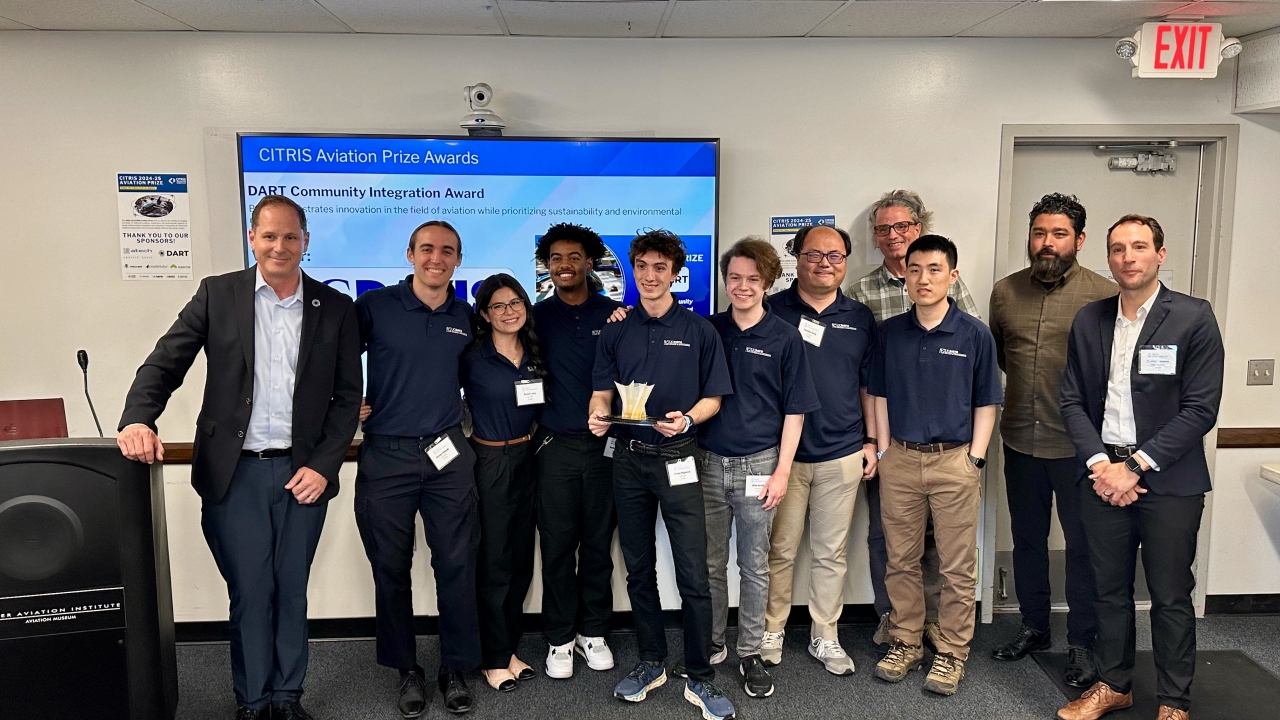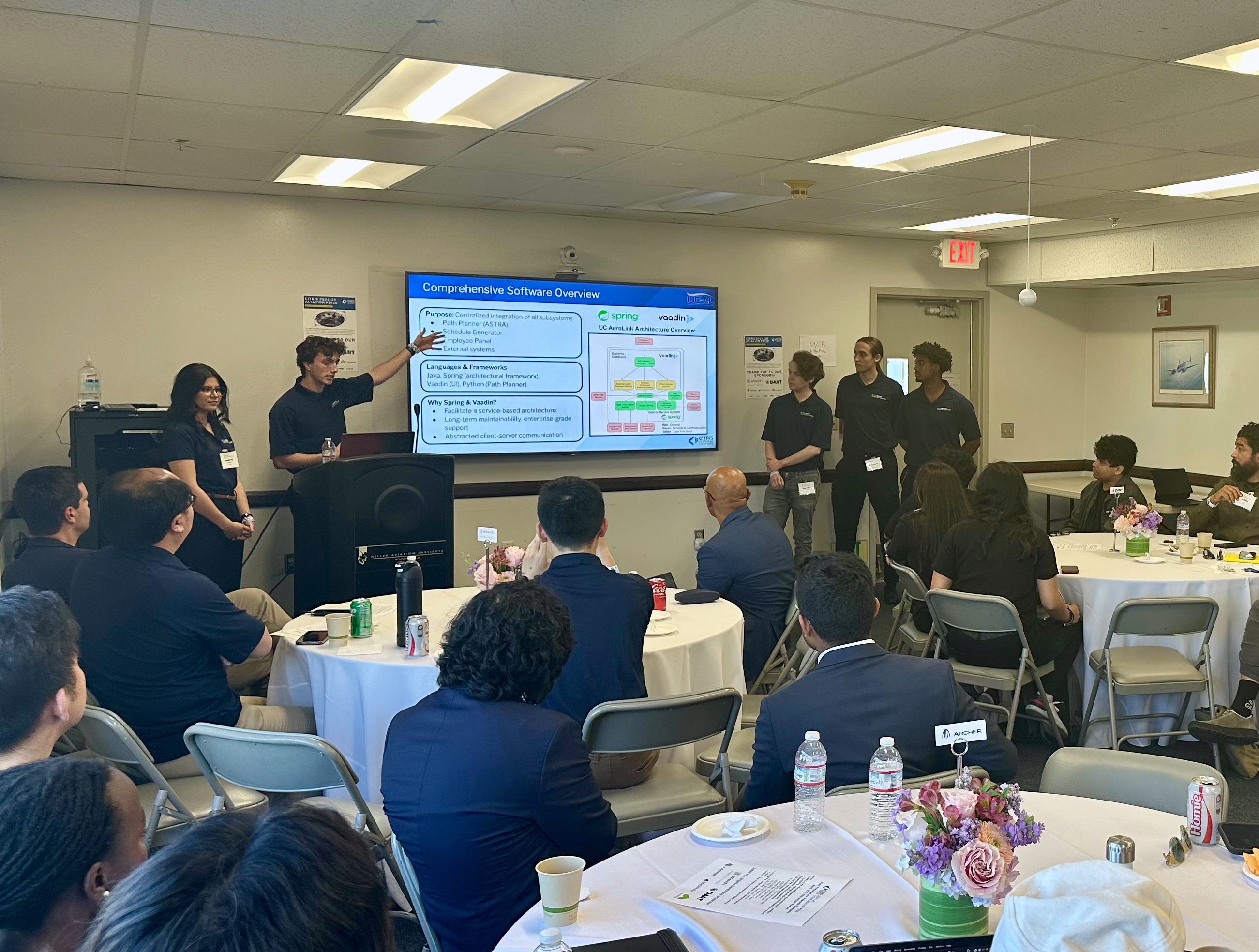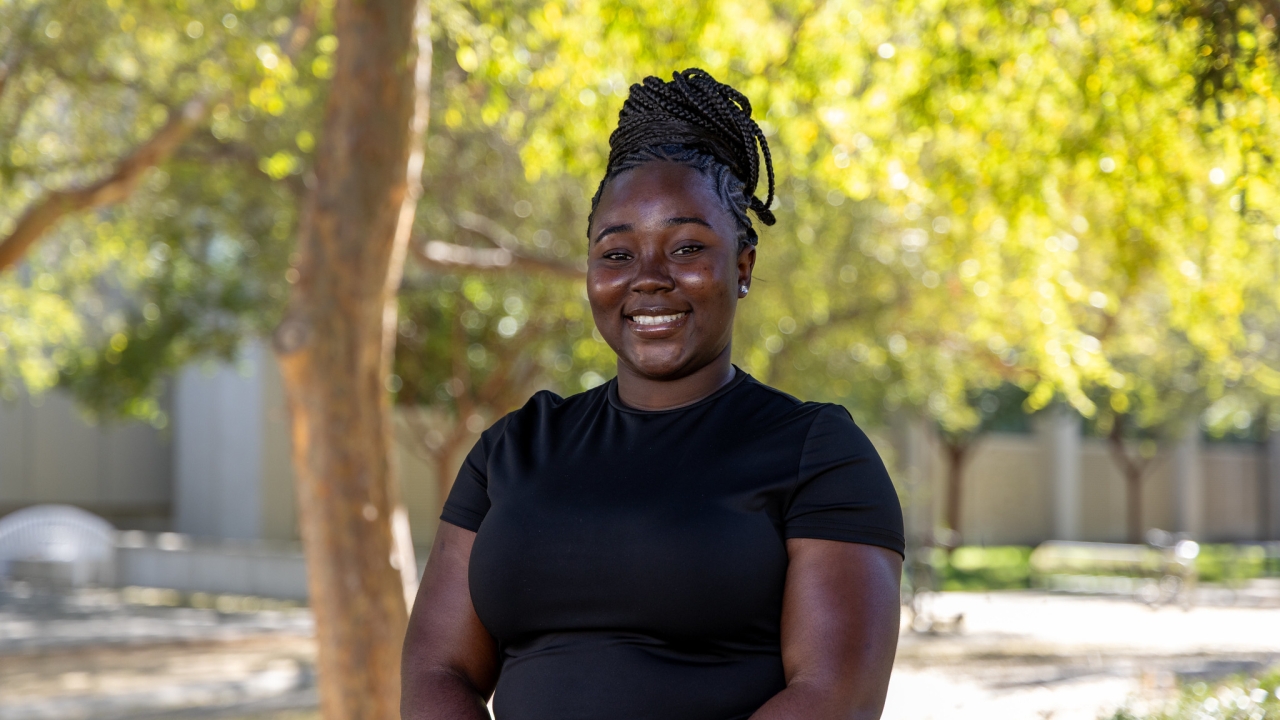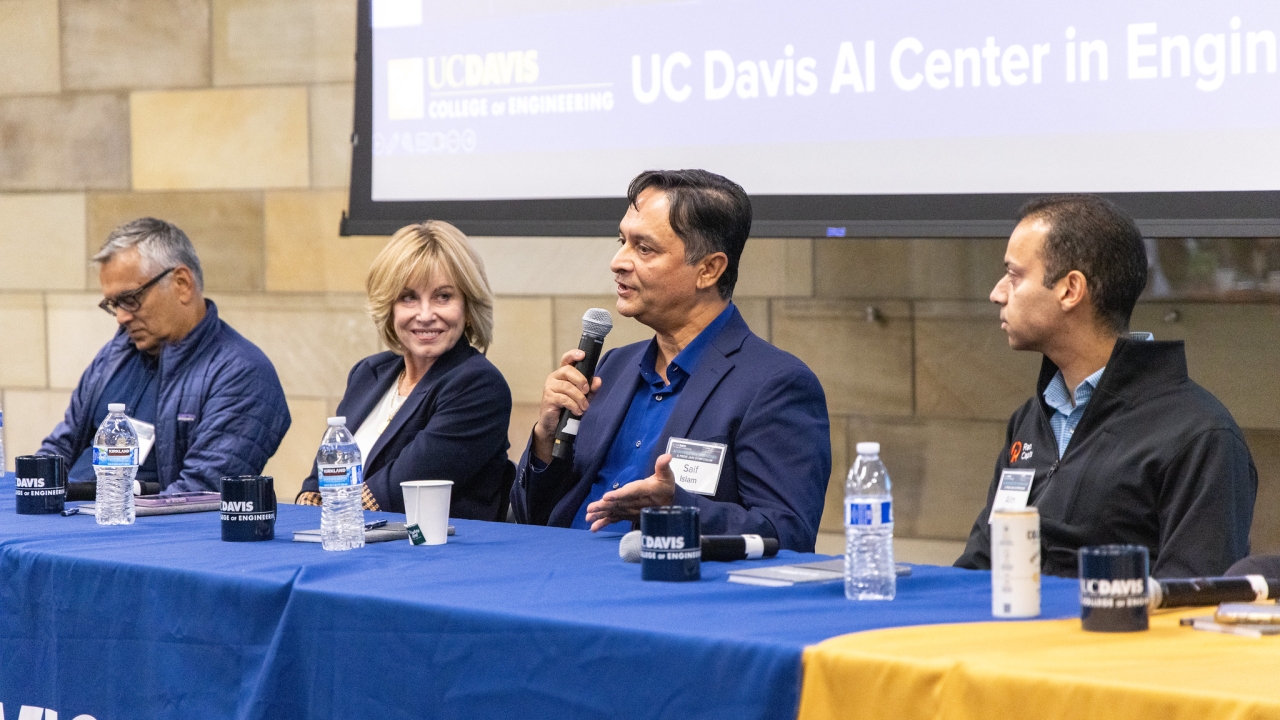
From Concept to Cockpit: UC Davis Team Wins Big at CITRIS Aviation Prize
On the afternoon of Monday, May 5, in a conference room at the Hiller Aviation Museum in San Carlos, a team of students from the University of California, Davis, was one of four University of California teams to deliver their original design proposal for a first-of-its kind intercampus air transportation system to two dozen industry and academic leaders as part of the 2024-25 CITRIS Aviation Prize competition.
The UC Davis team — comprising undergraduate students Oliver Austin, Shreya Chandra, Yemikael Dawit, Nicolas Holasek, Rachel Long and Orfeas Magoulas — earned $12,000 in awards, including the DART Community Integration Award, worth $6,000, and the $3,000 CITRIS Aviation Award for Most Comprehensive Software Design. They also tied with UC Berkeley for the Atech Award for Most Innovative Design for Air Mobility, receiving $3,000 of the $6,000 award. Teams from UC Merced and UC Santa Cruz also presented.

Organized by CITRIS Aviation, a research initiative of UC’s Center for Information Technology Research in the Interest of Society and the Banatao Institute (CITRIS), this year’s contest built upon last year’s competition, which focused on conceptual designs for air mobility infrastructure.
The 2024-25 contest required students to create critical aviation simulation software and guidance, navigation and control algorithms for electric vertical take-off and landing, or eVTOL, vehicles, as well as an operation plan for the rollout of the proposed system.
With mentorship from faculty advisors, the teams built out robust plans, designing algorithms to guide aircraft, schedule flights and monitor system performance. The competitors sought to optimize energy usage and ensure safe operations across the campus environments, all while prioritizing seamless integration with existing ground transportation.
Transitioning from brainstorming to implementation mode wasn’t easy, said Orfeas Magoulas, an undergraduate student majoring in aerospace science and engineering at UC Davis, but it was worth every hour in the end.
“The concept of optimization was completely new to me,” Magoulas said. “It’s the process of taking a real-life scenario, breaking it down into mathematics and turning it into something a computer can solve. It was difficult but incredibly rewarding to learn, because now I can use the same techniques in future projects and show these skills to employers.”
The team is advised by Camli Badrya, assistant professor of mechanical and aerospace engineering, Zhaodan Kong, associate professor of mechanical and aerospace engineering and Peng Wei, a postdoctoral researcher of biological and agricultural engineering.
Read the full announcement of the CITRIS Aviation Prize winners






